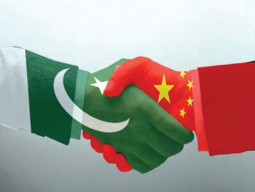
The commission concluded that the association took various decisions which had the objective or effect of restricting, reducing, preventing or distorting competition in the relevant markets.
It further ruled that a decision was taken by the standing committee of the PPA to collusively reduce the number of parent chicken stock aimed at reducing the production to increase the prices of the parent stock and end products in the poultry sector.
Furthermore, the commission order refers to a decision of the PPA with regard to early culling of chicken and marketing of starter eggs as table eggs and stated that the decision to reduce bird population by culling it early was anti-competitive in object.
The order also states that there was sufficient evidence of numerous decisions taken by the PPA which were designed to determine, at the very least, the farm gate rate of broiler chicken.
“There could not have been a clearer representation of a naked anti-competitive decision,” writes the three-member bench in its order. “During the hearing, the PPA made no effort to deny this decision. In fact, a PPA representative stated that the poultry industry could not have done anything else but this to prevent losses.”
The commission, taking notice of media reports citing an unprecedented hike in prices of poultry products and possible cartelisation, had initiated a suo motu inquiry under Section 37(1) of the Competition Ordinance 2009.
After noticing price-related announcements on the PPA’s website, enquiry officers recommended a search and inspection of the latter’s offices.
During the search and inspection conducted on May 24 and 25, 2010, relevant documents were impounded by authorised officers. The inquiry officers concluded on July 8, 2010 that there was prima facie evidence the PPA formed the cartel and sought a detailed inquiry.
The PPA contended before the bench that ‘price determination through free market mechanism of demand and supply negates the existence of a cartel in the poultry industry’. The bench observed from the evidence that was available on record that the PPA stance stands negated because prices are being determined collectively under the umbrella of the PPA.
Under the proposed CCP Bill 2010, which is likely to be passed in the next National Assembly session, the PPA can appeal against the CCP decision in an appellant bench before going against the decision in the Supreme Court.
The CCP so far has imposed over Rs7 billion fines and penalties on making cartels and abusing dominant position in the market.
Published in The Express Tribune, August 17th, 2010.

















COMMENTS
Comments are moderated and generally will be posted if they are on-topic and not abusive.
For more information, please see our Comments FAQ